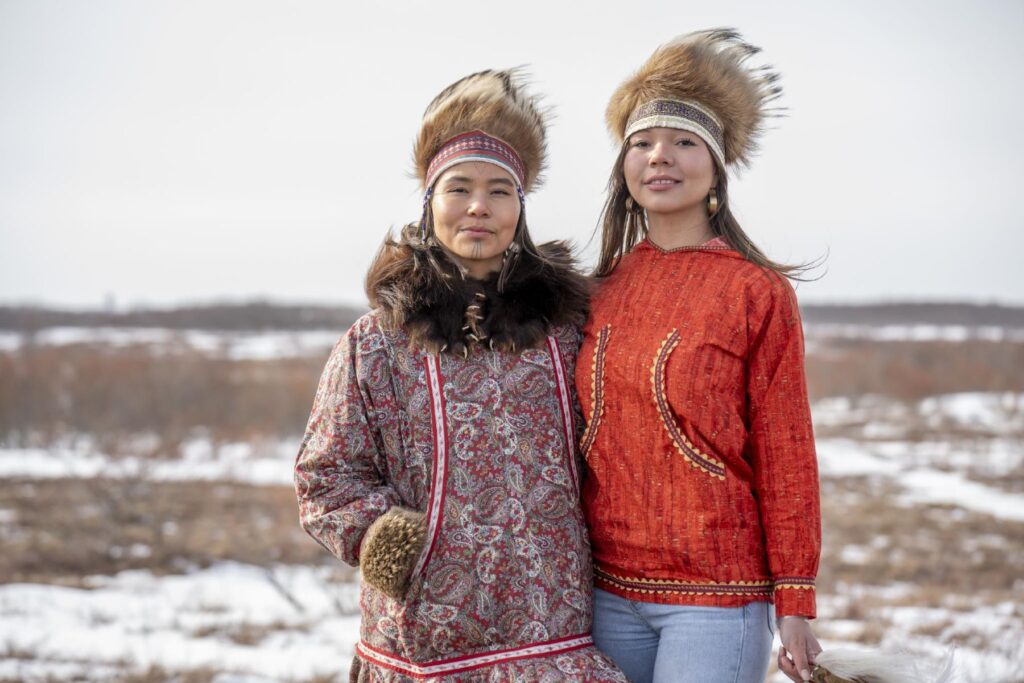This we know: the earth does not belong to man, man belongs to earth. All things are connected like the blood that unites us all. Man did not weave the web of life, he is merely a strand in it. Whatever he does to the web, he does to himself.
Kawagley, A.O & Chief Sealth

Background on the Yupiaq Worldview
What does Yupiaq mean?
Yupiaq is another way to say Yup’ik. Yup’ik people are Alaskan Natives typically inhabiting the Western Alaska region. Currently, the most populated town that is primarily Yup’ik is Bethel (Mamterilleq).
What is the Yupiaq Wordview?
The Yupiaq Worldview is essentially the way Yup’ik people view the world and it’s connectivity. Kawagley describes this worldview as a tetrahedron (3D triangle) with human as the one of the bottom corners, nature on another bottom corner, spirituality the last bottom corner, and the Yupiaq Worldview as the top corner. The point is that all of these aspects are connected and interchangeable.
For the human aspect, human’s belong to nature and human’s have spirituality which is manifested in nature. In spirituality there is The Creator, known as Raven, who is the utmost powerful and profound being, possessing abilities human’s never can or will have. In this power, there is efficiency, economy, purpose, and the expression of which is dependent on the human being.
How do Yup’ik people use this worldview?
Yupiaq people use this worldview to give meaning and reasoning to life. This worldview shows them how to learn, grow, and act in every aspect of their life. This worldview gives them primary values of sharing and cooperation, respecting and learning from elders, survival skills, and lots of other things in life. In this worldview, there is the belief that all things are created equal and therefore deserve equal access to the pursuit of life, liberty, and happiness. The exact way to practice this worldview is by learning from elders, typically through stories in the qasegig (community house).

The Yupiaq Worldview in Social Work and Me
The Yupiaq Worldview is something that could greatly benefit social workers and be apart of the new revolutionary social work movement. This practice can help social workers place value and meaning into their lives and see value and meaning in their client’s lives in a new manner. This worldview is especially valuable when working with clients that have a Yup’ik and/or Cup’ik cultural and ethnic background. Being able to see life and place value through a client’s eyes is extraordinarily beneficial to both parties. This worldview promotes an active change in thinking and can help a social worker connect with their client more and in turn providing better services.
As someone who has visited Bethel (Mamterilleq) this worldview would have been very beneficial during my time there. I, fortunately, remembered to learn some Yugtun (Yup’ik language) before going, so I was able to connect with the people I met in that way, but it would have been eye opening to be able to understand their values and way of life a bit better. Right now, all I am thinking of this kind woman I met who, when asked about her life values and healing process, emphasized how she wished she could connect with me more and explain it in a way I would understand better. Bethel often has the issue of outsiders going in and refusing to learn the Yup’ik way of life and then giving up and leaving; I think if more people were open to seeing through their eyes they’d see just how beautiful Yup’ik culture is and can be if you try to understand.
What do you think of the Yupiaq Worldview?

Comments
One response to “Man Belongs to Earth, Man Has Spirituality, Spirituality is Founded in Earth”
A few years ago, I led a youth group on several trips around the state to help various organizations with projects associated with the upkeep of youth rehabilitation camps and villages. My personal experience with the Yupiaq was concerning at best. In actuality, it was heartbreaking. It felt very similar to the time I ran across a quote from Ghandi about Christianity. “I like your Christ, but not your Christianity.” Which, as a Christian, is a stark reminder to refocus my actions and intents in a more Christlike way.
I had read Dr. Yellowbird’s book, and several others, before I went on these trip, and so perhaps expected something unrealistic as I traveled to the villages. In the end, I think I learned that the “new culture” of this age, with all it’s glamour, flash, and sensuality, has a tendency to out-shout the wisdom of the past.
Good post- thankyou for the time you put into it.